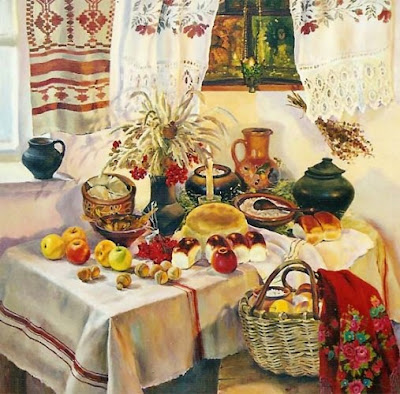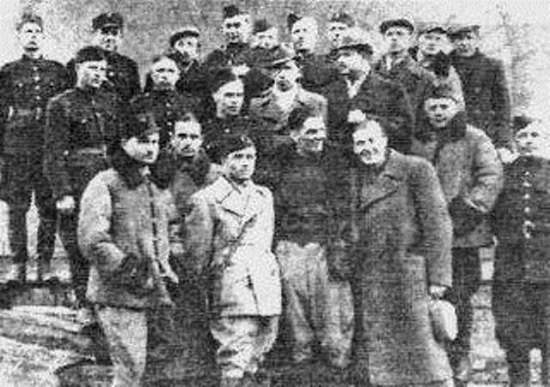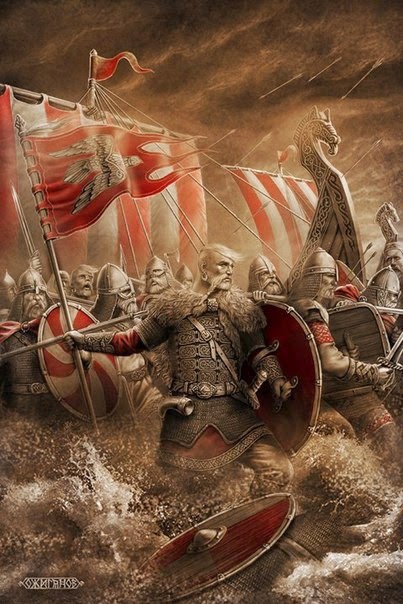OUR TRADITIONS: VODOHRESHA - THE GREAT BLESSING OF WATER
Vodohresha is a final holiday in our Christmas cycle. Traditionally Ukrainians celebrate this fest on January 19. In the *Ruthenian Christian tradition this day combines two events - first is theophany of Jesus Christ as the second incarnation of the Holy Trinity, that is God the Son. All three incarnations: God the Son among the peoples, God the Father who said from the heavens and the Holy Spirit who came down to Jesus Christ have shown themselves simultaneously.
This holiday has long been held in high esteem among Ukrainians; its celebration begins the day before, in the evening of January 18. Traditionally, in that evening a Ukrainian family usually gather together at the festive table after visiting the evening service in the Church. Previously, head of a family should sprinkle his house with holy water from the evening service, burn diduch and ask children to "expel the Frost," that symbolizes rapid completion of winter with the winter holidays.
We have also mention an old folk tale, according to which animals get an ability to speak human language on this day, and the one, who will overhears their conversations will have bad luck in future.
Another important custom associated with Vodohresha is the Great Blessing of Water, in the morning of 19th January. Water, consecrated this day acquires great power and healing properties. This beautiful Ortodox tradition is another reflection of whole beauty and total integrity of our worldview, where every piece of nature is filled with God's grace.
In Cossack times, after the ceremony of blessing of water in temples as well as local lakes or rivers, traditionally was fired a solemn volley of rifles or cannons. There is also a belief that in the morning of Vodohresha the water in all lakes, seas and rivers is acquiring miraculous power.
 |
| Traditional swimming in the ice-hole on Vodohresha |
* Ruthenians - the people of Kievan Rus', a kingdom of Eastern slavs (currently the Ukrainians, Belarusians and Russians, who live in certain areas of western Russia), located at the territory of current Belarus, Ukraine and few regions of the western part of the Russian Federation. Later, Ruthenians - the people of The Principality of Galicia–Volhynia (also known as the Kingdom of Ruthenia), a heir of the Kievan Rus' and the prototype of the modern Ukrainian state.
Related articles:







Коментарі
Дописати коментар